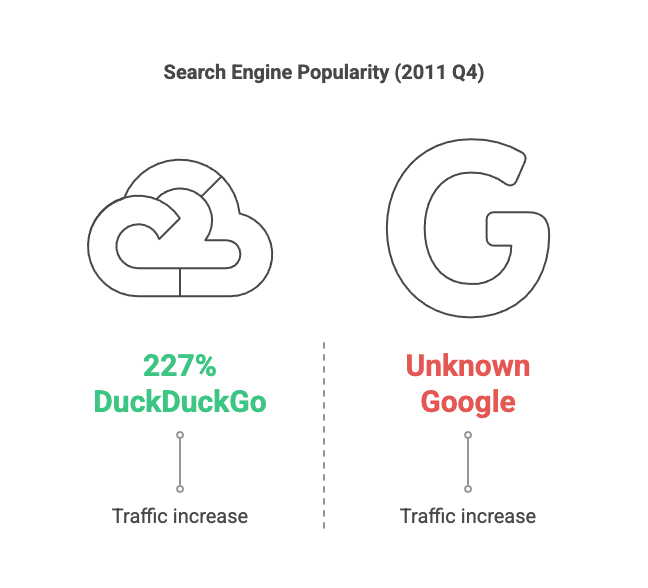As we noted in our previous article, personalization in the major search engines is changing the SERP landscape. Indeed, each individual gets a search landscape. This landscape is shaped uniquely. It is shaped to meet their needs. Google spends a lot of money on research and development. This is to bring relevant search results to its users. They have more or less bet the farm on socially directed, personalized search results. Some people find this to be a wonderful advance, and Google’s recent iteration for search on mobile — Google Now — is the logical extension of this approach, and has found favor in many corners.
However, not everyone is happy with the way search is going. A large number of users are unhappy. This is because of the huge amount of personal information Google needs to collect. They need this to provide personalized services. Basically, these users don’t trust Google. They also don’t trust other search engine providers. They don’t want to share the intimate details that personalization needs.
Additionally, many users are complaining that personalized / social search is actually throwing up less relevant results, a situation which will hopefully improve as Google becomes more adept at processing semantic and social signals, but for the moment, it’s an annoyance for users. A third complaint is being heard. The new Google interface is far too cluttered. Some users mourn the old days. Back then, there were ten blue links. These were the same for everyone.

While it’s unlikely that, in the short and medium term
The present dissatisfaction is likely to threaten Google’s dominance of the search market. Therefore, it behooves us to take a look at where disgruntled users are turning for their search needs.
DuckDuckGo bills itself as a search engine that puts privacy and presentation at that heart of its strategy. It doesn’t keep a search history and has no truck with personalization. Many users feel that DuckDuckGo does information presentation the right way, and although still small in comparison to Google it has picked up quite a momentum, increasing traffic by 227% in the last quarter of 2011. Some prominent voices have endorsed DDG as a way of reducing Google’s intrusion into their lives. A similar service, although somewhat less slick, is Gibiru, which offers “uncensored” and anonymous search.
Blekko takes a slightly different tack, emphasizing spam-free curated search results, which are focused more on authoritative sources than incoming links as a quality filter. Blekko also adds a slashtag feature, with user and system curated search filters for subjects.
Whether these search engines eventually succeed is not yet known. It also remains to be seen if they will go the way of Cuil. However, competition in the search space is a good thing. It offers choice. It also puts pressure on the bigger search engines to improve their product.




